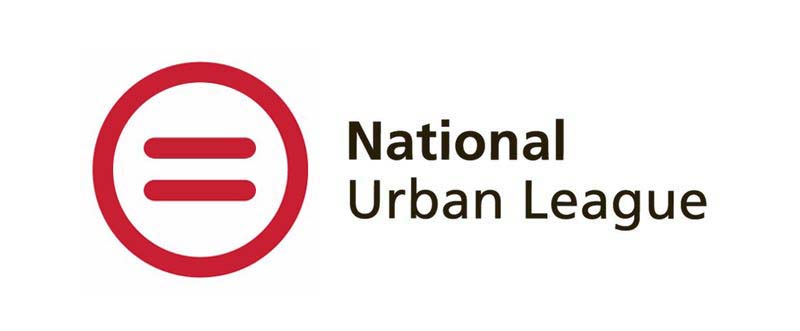It wasn’t all that long ago that some companies were known for asking “tricky” interview questions. These were questions like, “Why are manhole covers round?” (Hint: Because they don’t have corners, making them simple to fit over the hole.) Tricky indeed! Of course, the internet made it easy to find the answer to this and other unusual interview questions, but the answer didn’t really tell the interviewer how well you could do the job.
As a result, employers are getting away from these types of interview questions and moving to something that seems tricky but isn’t: behavioral interview questions. These questions get at the heart of who you are as a professional. And you can’t google the answers!
But what are behavioral interview questions, and how can you answer them? This guide covers all that and more:
- What Are Behavioral Interview Questions?
- Why Do Employers Ask These Kinds of Questions?
- How to Answer Behavioral Interview Questions
- 30 Common Behavioral Interview Questions
What Are Behavioral Interview Questions?
While many interview questions ask about your skills and abilities, behavioral interview questions ask how you use your skills and abilities to accomplish your tasks.
For example, an employer might ask you what your greatest strength is to assess what you think you’re good at and could bring to a role. But a behavioral question asks how you use your strengths in a professional setting.
Employers ask these kinds of interview questions in many ways. The questions tend to be open-ended and prompt you to tell a story. So, any time you hear the following types of lead-ins, you can feel confident you are being asked a behavioral-based interview question:
- Tell me about a time when…
- Give me an example of…
- Describe a time when…
- How would you handle…
Why Do Employers Ask These Kinds of Questions?
Employers often ask behavioral interview questions to assess your soft skills and how you use them, though they can ask about your hard skills, too. It’s one thing to say you have excellent conflict-resolution skills, but how have you used them on the job?
>>MORE: 15 Entry-Level Interview Questions
While the employer can ask your professional references about your skills and abilities, asking about a specific time you used your skills forces you to give concrete examples of what you do and how you do it. More importantly, it’s a lot harder to improvise an answer to behavioral interview questions. You can bluff your way through, “What if you encountered X?” but it’s a lot harder to make up an answer to, “Tell me about a time you encountered X and what did you do?”
What Behavioral Interview Questions Tell Job Seekers
The interviewer learns a lot about you as a potential employee through these questions. But behavioral interview questions can also give you a lot of insight and raise potential red flags about the role.
Employers generally use real-life scenarios you’ll likely encounter on the job. So, if the employer is asking a lot of questions about how you handle angry customers or coworkers and how you deal with snafus, there’s a good chance you’ll deal with exactly that — a lot of angry customers or coworkers and snafus.

Interview Fundamentals
Practice answering common interview questions with this free Forage course created by the leaders at Comcast.
Avg. Time: 2 hours
Skills you’ll build: Video interviewing, resume writing, elevator pitch, verbal communication
How to Answer Behavioral Interview Questions
In some respects, you can’t prepare for behavioral interview questions. Unlike, “Why are you applying for the position?” there’s almost no way for you to know which scenarios the interviewer will ask about. But there are some common behavioral interview questions the recruiter or hiring manager is more likely to ask.
The best way to tackle any behavioral interview questions is by using the STAR method in your answer. STAR stands for situation, task, action, result, and this acronym can help you remember the key elements to create a good answer for behavioral interview questions.
In a nutshell, you talk about:
- The Situation you faced
- The Task you had to complete
- The Actions you took
- The Results
STAR!
Using this formula helps you explain to the hiring manager that you have the skills they’re looking for and, more importantly, how you’ll use them on the job.
>>MORE: 10 Common Leadership Interview Questions and Answers
What’s more, the STAR method helps you answer behavioral interview questions about your hard and soft skills in a way that connects the dots for the employer. For example, it can be hard to explain how your communication skills will benefit the team. But if you explain that you use your communication skills to improve client relations or to increase website traffic, that helps the employer understand how your communication skills will benefit the company’s bottom line.
To prepare for behavioral interview questions, think about situations when you used your skills to overcome a challenge and what the outcome was. You can refer to these during the interview. That said, not every story you prepare in advance will fit the question, so be prepared to think on your feet! And while your answer reflects your skills and abilities, it should also be relevant to the specifics of the role, so keep that in mind as you formulate your response.

Interview Preparation: Your Own Story
Prepare for your next interview by identifying and understanding your strengths and learning how to tell your unique story.
Avg. Time: 3-4 hours
Skills you’ll build: Interview preparation, career and self-development, research, storytelling, communication
30 Common Behavioral Interview Questions
To give you some practice answering behavioral interview questions, below are 30 questions, grouped by subject area, to help you get prepped and ready for your next interview.
Behavioral Interview Questions About Collaboration
Collaborating and working as part of a team is an essential part of any job. So, think about one or two times you had to collaborate with others or work as a team to get something done. This can include working on school projects (like a group project), volunteering, or even a time you had to wrangle a large group of people to get something done (like scheduling a group vacation).
- Tell me about a time you had to work with someone with a very different work style than you.
- How do you go about getting information from someone who knows more about a subject than you? How do you handle things when they aren’t very responsive?
- Tell me about a time when you worked as part of a group, but someone wasn’t pulling their weight.
- When you’re working on a team, what roles do you gravitate toward and why?
- Tell me about a time the team had to compromise.
Behavioral Interview Questions About Conflict
Conflict is an inevitable part of most jobs. But conflict isn’t necessarily bad. Sometimes it’s just a difference of opinion. Explaining how you handle conflict helps an employer understand how you’ll react to all kinds of conflict at work.
- How do you handle setbacks at work?
- Tell me about a time you failed at work.
- Have you ever had to deal with an angry client or customer? How did you de-escalate the situation?
- Have you ever had to deal with a difficult coworker? How did you handle it?
- Tell me about a time you had to tell a coworker or supervisor no.
Behavioral Interview Questions About Communication
Whether it’s verbal or written, communication skills are a crucial part of any role. Explaining how you use your communication skills on the job can help you land the role. You can use examples from a job or school, and feel free to talk about a time when you had to talk to a supervisor or professor.
- Tell me about the last presentation you made. How did it go?
- Tell me about a time you had to deliver bad news to someone. How did you prepare, and how did it go? What would you do differently? (Note: you can use a personal experience in this case, but choose carefully. Discussing a medical diagnosis or someone’s death may not be appropriate for a job interview.)
- Have you ever had to change up your preferred communication style? For example, you have a boss that only wants to communicate via Slack, but you prefer face-to-face communication. How did you handle this, and how did it impact your work?
- Tell me about a time you successfully persuaded someone to see things your way.
- Tell me about a time a communication of yours did not get the intended message across. What went wrong, and what would you do differently next time?
Behavioral Interview Questions About Flexibility or Adaptability
If the pandemic taught us anything, it’s that things can change overnight (literally!). But, even before the pandemic, interviewers asked questions to learn more about a candidate’s flexibility and adaptability because sometimes the business has to pivot quickly. How well do you adapt to change?
- What is the biggest challenge you’ve faced? How did you overcome it, and what did you learn?
- Tell me about a time when your job (or school) introduced a new procedure or software. How did you handle the change?
- How do you handle things when you’re assigned a task that falls outside your assigned job duties?
- Tell me about a time you had to improvise.
- How do you handle a lot of stress or pressure on the job or in school?
Behavioral Interview Questions About Time Management or Prioritization
Understanding how you manage your time and prioritize tasks helps the hiring manager understand how you tackle your projects. And whether you’re someone who likes to get things done well in advance or thrives under the pressure of a looming deadline, explaining how you prioritize your work helps you and the interviewer figure out if you’ll be happy in the role.
- How do you handle multiple and competing deadlines?
- What do you do when a supervisor comes in and gives you new deadlines on existing projects?
- How do you determine how much time a specific project will take?
- Tell me about a time you set a goal for yourself (personal or professional). What steps did you take to make sure you achieved it?
- What do you do when it’s clear you won’t achieve your objective by the due date?
Other Behavioral Interview Questions
Some behavioral interview questions don’t fit into a neat category. But employers still ask them because your answers paint a more robust picture of how you’ll do your job.
- How do you handle setbacks at work?
- What do you do if you don’t understand the project assignment?
- What professional accomplishment are you most proud of?
- Tell me about a time you were dissatisfied at work. What did you do to address that?
- Do you have any work habits you want to improve or change?
Get ready for your next interview:
- How to Answer: ‘What Motivates You?’ in a Job Interview
- How to Answer: ‘Tell Me About Yourself’
- 5 Common Interview Questions for All Careers
- 20 Common Data Science Interview Questions
- 15 Accounting Interview Questions and Answers
- Entry-Level DevOps Interview Questions (With Answers)
Image credit: Canva


